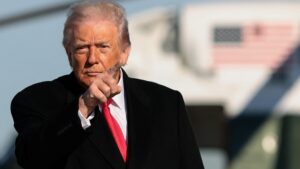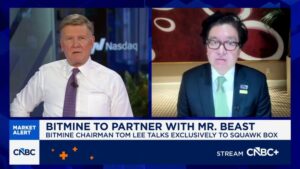Consumer Financial Protection Bureau Director Rohit Chopra said Tuesday that financial regulators already have the legal authority to implement new rules on executive pay in the banking industry, which he believes could help prevent failures like that of Silicon Valley Bank seen last month.
“We can’t have a system where executives take huge risks that blow up years down the road, but can pocket big sums of money and stock options and they can fly the coop before the damage wrecks the bank,” Chopra said in an interview with Washington Post Live.
Chopra said regulators could pass new rules that restrict executive compensation or require that more of it be deferred “so that if things blow up, those executives won’t get the money.”
President Joe Biden called on Congress last month to pass legislation to make it “easier for regulators to claw back compensation from executives, to impose civil penalties, and to ban executives from working in the banking industry again.”
Since 2018, Silicon Valley Bank’s chief executive, Greg Becker, and its chief financial officer, Dan Beck, saw their compensation grow by 30%, filings show. Becker’s total compensation for 2022 was more than $9.9 million, including a $1.5 million cash bonus.
Chopra said that Congress may decide to expand regulators’ authorities, he was adamant that financial regulators don’t always use their full powers under current law to prevent bank executives from profiting from risky behavior.
“One of the things that we see across the financial regulators — when I took office at the CFPB a year and a half ago — there were so many legal authorities that Congress had already enacted, but were not implemented,” Chopra said. “We are really focusing on these dormant provisions of law and making sure that we are realizing the benefits of what Congress put that work into.”
The CFPB director did lay some of the blame for Silicon Valley Bank’s failure on deregulatory efforts by the Trump administration and a 2018 law by Congress that lightened oversight of midsize banks like SVB.
Chopra argued that the Congress and the Federal Reserve followed an incorrect premise that banks of SVB’s size
KRE,
with more than $100 billion in assets but less than $250 billion, would not pose a systemic risk to the economy if they failed.
“We now have a clear fact from last month that [a midsize bank’s failure] could have caused real wreckage in the banking system and the economy,” he said. “And this is not a community bank. It’s a domestic, systemically important bank, and it needs to be appropriately and robustly regulated and supervised.”
This post was originally published on Market Watch






